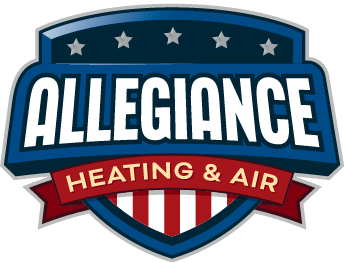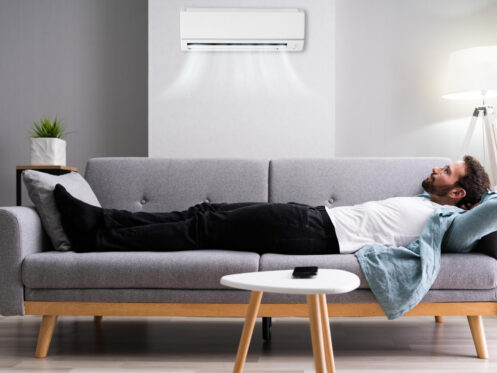Water leaks from your AC unit can quickly become a significant concern for homeowners. These leaks can lead to water damage, mold growth, and a host of other problems that compromise the comfort and safety of your home. In Jeffersonville, where the summer months bring soaring temperatures, a malfunctioning AC can disrupt the cool sanctuary your home provides. Understanding the causes and signs of water leaks is the first step in addressing these issues and ensuring your AC runs efficiently throughout the year.
Addressing water leaks promptly is important for maintaining both the efficiency of your air conditioning system and the comfort of your home. Leaks not only reduce the cooling power of the unit but can also significantly increase your energy bills. A system that’s struggling to perform due to water leaks will work harder to maintain the desired temperature, putting unnecessary strain on its components. Early detection and professional intervention are key in preventing further damage and ensuring your AC unit operates smoothly.
Common Causes of Water Leaks in AC Units
Water leaks from an AC unit can result from several factors. By understanding these common causes, homeowners can be more vigilant and seek professional assistance when necessary.
– Clogged Condensate Drain Line: One of the most common culprits of AC water leaks is a clogged condensate drain line. This happens when dirt, dust, or mold builds up and prevents the proper drainage of condensation, causing water to back up and leak from the unit.
– Dirty or Blocked Air Filters: Air filters that are dirty or blocked can reduce airflow, which may lead to the evaporator coil freezing. When the coil thaws, the excess water can overflow the drip pan, resulting in a leak.
– Low Refrigerant Levels: When your AC unit has low refrigerant levels, the pressure in the system drops, which can cause the evaporator coil to freeze up. Similar to dirty filters, when this coil thaws, there is a risk of water leakage.
– Broken or Damaged Drain Pan: The drain pan collects water that melts off the evaporator coil. Over time, this pan may rust or suffer damage, resulting in leaks if it can no longer contain the water.
Homeowners who notice any of these issues should consider seeking professional help. Our technicians can diagnose and repair the problems efficiently, preventing potential damage and ensuring your AC system functions optimally. This proactive approach helps maintain a comfortable and energy-efficient home environment in Jeffersonville.
Signs Your AC Unit is Leaking Water
Identifying the signs of water leaks in your AC unit can help prevent significant damage to your home. Being alert to these indicators allows you to act quickly and prevent further complications. One of the most visible signs is puddles or water stains around the unit. If you notice water collecting near your AC, it’s a strong indication of a leak. Additionally, pay attention to any unusual sounds coming from your AC unit. These noises can signal that water is not draining properly.
Aside from looking for visible signs, you might also feel the effects of an AC leak. Lower cooling efficiency is another common symptom. If your home isn’t cooling as expected or the unit seems to work harder without effective results, water leakage could be at fault. Increased humidity levels inside your home can also be a red flag, as a properly functioning AC should help manage indoor moisture.
How to Prevent Water Leaks in Your AC Unit
Preventing water leaks requires understanding the importance of maintenance and routine inspections. Regular maintenance is crucial in keeping your AC unit in optimal working condition. Scheduling inspections allows professionals to identify potential issues early, avoiding expensive repairs or replacements in the future.
Here’s how you can minimize the risk of water leaks:
– Regular Maintenance: Routine inspections and maintenance can help detect and resolve issues like clogged drain lines or worn-out parts before they lead to major problems.
– Keep the Condensate Drain Line Clear: Professional technicians can ensure that the condensate line remains free from obstruction, enabling efficient drainage.
– Replace Air Filters: Changing air filters regularly improves airflow and helps prevent the evaporator coil from freezing, which can lead to leaks as it thaws.
– Schedule Professional Check-ups: Engaging our professionals for regular check-ups allows for early detection of signs that can lead to water leaks.
What to Do If You Find a Water Leak
Discovering a water leak in your AC unit calls for immediate attention. Addressing the problem quickly can save you from further damage and costs. The first step is to reach out to professionals who can diagnose and fix the leak effectively.
When should you call for emergency AC repair in Jeffersonville? If there’s significant water accumulation or your AC unit stops cooling effectively, it’s time to contact our experts. Quick professional intervention helps prevent damage to your home and ensures that your AC runs efficiently.
Ensuring Reliable AC Performance
Water leaks, if left unaddressed, can compromise the reliability of your AC unit. Regular maintenance and timely repairs are key to ensuring your home remains comfortable during the hot months in Jeffersonville. By taking proactive measures, you secure the longevity of your system and keep your house cool and pleasant.
Maintaining a healthy AC system not only provides peace of mind but also helps in managing energy bills more effectively. Investing in regular inspections and addressing problems as soon as they arise are practical steps to keeping your air conditioning unit in top shape. Securing a routine service schedule can go a long way toward maintaining a comfortable and energy-efficient home environment.
If water leaks disrupt your comfort in Jeffersonville, professional support is the best way to safeguard your home’s condition. Our technicians are ready to address unexpected issues with emergency AC repair in Jeffersonville and restore your air conditioning system quickly and safely. For a quick estimate or to book a service visit, please contact us today.




